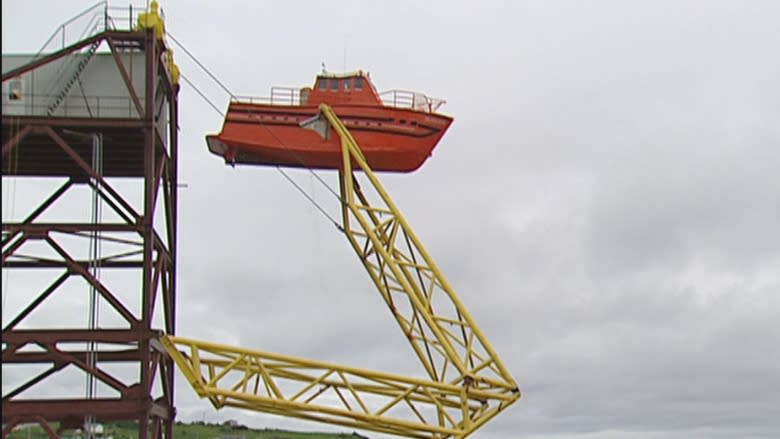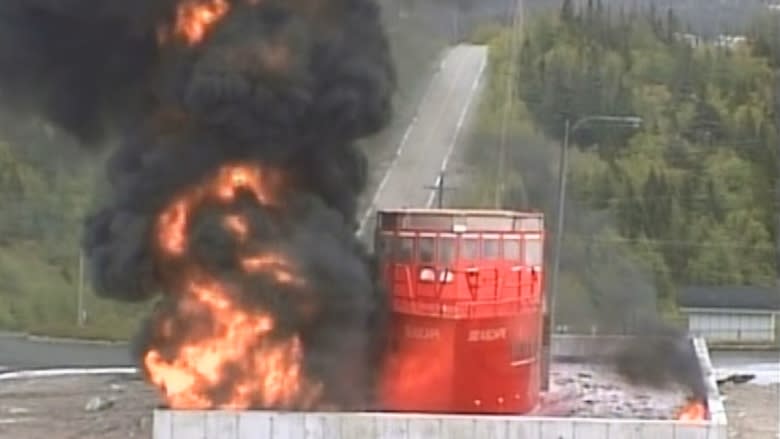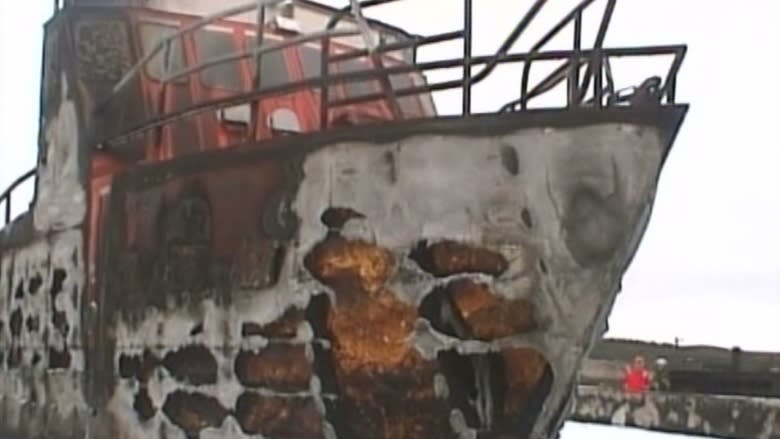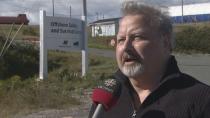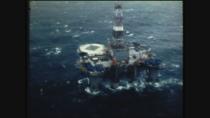'I'm very, very disappointed': Inventor dismayed by lack of progress on offshore oil safety
An inventor who spent much of his career on an unfulfilled quest to build a better emergency lifeboat for oil rigs is questioning what lessons were learned in the wake of the Ocean Ranger disaster that killed 84 people.
"I want to call on the Prime Minister of Canada, Prime Minister Justin Trudeau, to carry out an extensive review of safety for offshore Newfoundland," said Dan O'Brien, who spent two decades designing, building and testing a lifeboat evacuation system called Seascape.
Seascape — which used an aluminum boat that could be lowered from an oil platform or rig to the ocean — underwent vigorous testing for years, with O'Brien motivated by the sinking of the Ocean Ranger in February 1982.
More than 34 years later, O'Brien argues that key issues sparked by the Ocean Ranger tragedy have not been resolved.
"The Ocean Ranger recommendations were not adequately addressed particularly when it comes to EER —that's evacuation, escape and rescue," O'Brien said in an interview.
The safety laws and regulations now in place do not go far enough, O'Brien said.
"I'm not looking for a job here. When I started my company … I was 32 years old. I'm now 64. And I'm kind of done," he said.
"I got to express my views here [and] I'm very, very disappointed," said O'Brien.
Final test did not go as planned
O'Brien's work developing Seascape was in response to the recommendations made by the royal commission that investigated the Ocean Ranger sinking.
In order for Seascape to be certified, 25 different tests had to be carried out.
O'Brien said he took his invention successfully through the first 24 tests.
The 25th and final test was a burn challenge that did not go as planned.
The burn test involved setting fire to the water in a man-made pool at the Offshore Safety and Survival Centre in Foxtrap, just outside St. John's.
The burn lasted longer than expected and the boat was badly damaged.
"International protocols requires that if you destroy a boat in a fire or some other way, you have to build a new boat, an entirely new boat, and do all the 25 tests [again]," says O'Brien.
Rather than proceed, O'Brien walked away from the project 10 years ago.
Although he's not involved in Seascape, he remains deeply concerned about what's going in Newfoundland's offshore.
O'Brien said that in the Hebron project review, there was no mention of life boat evacuation.
"There was something there that mentioned evacuating by helicopters in anticipation of something going wrong," he said.
"But when it all hits the fans and you got an emergency response — you have to get off because of an explosion and fire, or whatever — then you need the lifeboat system, but nothing was addressed," said O'Brien.
Fatalities too high
O'Brien says the number of deaths in Newfoundland's offshore oil industry, at more than 100, is startling, since only three fields have gone into production so far.
He said the number of fatalities is far too high considering other jurisdictions around the world where hundreds of rigs are operating.
"That's a lot of people for the amount of activity we've had in this jurisdiction, [and] compared to other jurisdictions, like the Gulf of Mexico or the North Sea," said O'Brien.



